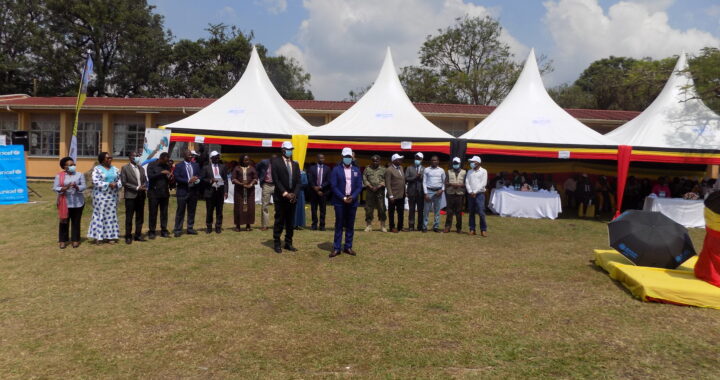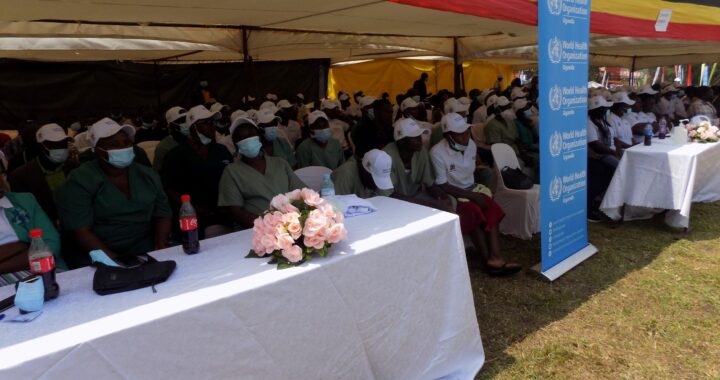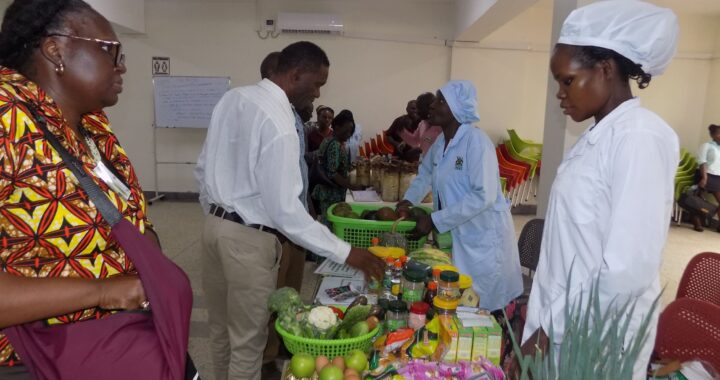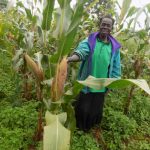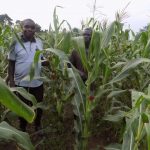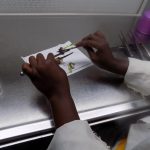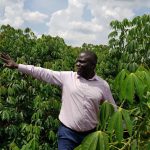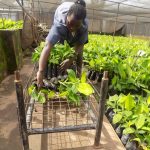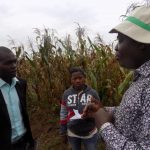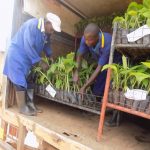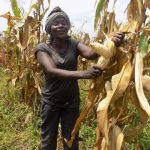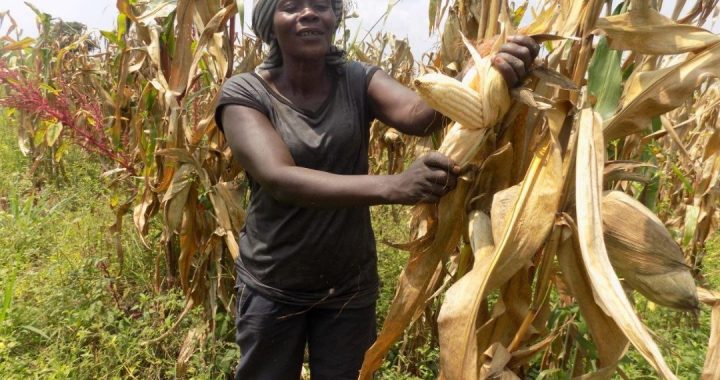Africa’s health system ready for mpox
5 min read
Public health officials during End of Ebola Outbreak in Uganda ceremony in Mubende district grounds in 2022. Photo by Christopher Bendana
Christopher Bendana
Kampala, Uganda.
Giving an opportunistic view on the mpox current scorecard in the country while addressing the media on Friday Henry Kyobe Bosa also called for vigilance
“Lets control the numbers not to reach their 100s and 1000s as this will stretch the health system,” said the army doctor and incident commander at the Ministry of Health virtually from Congo, Brazzaville.
Mpox a viral infection disease like its cousin small box has been spreading faster in the Democratic Republic of Congo than elsewhere in the world
The current clade 1b (variant) is the dominate in the Congo Basin.
The disease has since spread to neighboring countries including Uganda, Kenya, Rwanda, and Nigeria according to the World Health Organization (WHO) putting the countries healthcare system on tenterhooks.
The disease manifests mainly with lesions on much of the body including sexual parts, general body weakness, headache, fever, and sore throat.
Its transition includes a fever, lesions, and several diseases
It is transmitted through bites of contact with monkeys, rodents, and cooked meat of infected animals. It can also spread from the environment through wounds.
Uganda has 5 confirmed cases as of August 22 according to Kyobe. Of the five two are from Kasese district. The border town with DRC
Another case is from Mayuge district in Eastern Uganda. One is in Amuru district, a resident of Elegu town near the South Sudan border. There is also a reported case in Kampala
Although the situation looks benign, the fact that infections are spread across the country means the disease would spread among the population at the time.
Kyobe said they were using the COVID-19-developed infrastructure to mitigate the spread including the use of mobile testing labs of suspects and treating the sick.
He called on the population to be on the alert and advised the wearing surgical masks to cover any lesions, avoid sex, and not share personal care materials like towels and linen with mpox patients
Other mitigation measures include regular washing of hands with soap and the use of an alcohol-based hand rub
Like it was during COVID-19, he recommended respiratory hygiene; like covering one’s mouth while coughing and sneezing with your elbow or tissues, and disposing of used tissues immediately after use.

If one develops symptoms, particularly if they have recently traveled overseas or had contact with a case, including sexual contact, they should seek care at their general practitioner or nearest sexual health clinic. He said it was important to contact the healthcare facility before your appointment; to ensure you can be handled separately from others.
The WHO also talks of self-care including the use of saltwater for sores in the use and on counter drugs like paracetamol.
It also calls for HIV testing of mpox patients as it is known to lower the patent’s immunity.
Earlier in the week on September 29, 30 scientists from across the globe under the auspices of the WHO, the National Institute of Allergy and Infectious Diseases, the Coalition for Epidemic Preparedness Innovation ((CEPI), and Africa Centres for Disease Control and Prevention held a research and innovation meeting to forge a way forward on how to control the spread of the viral infection.
Held under the theme Research and Innovation; Aligning mpox Research Response with Outbreak Goals; discussions centred on how conducting research optimizes clinical care ? And, what can governments do to support national researchers and research institutions?
Other topics were Deliberating on Current Disease Transmission Dynamics & Clinical Course, Assessing Vaccines: Integrating into the Outbreak Response, converging on Vaccine Regulatory and Ethics Frameworks, Assessing Diagnostics Integrated into the Outbreak Response, and Assessing Therapeutics Integrated into the Outbreak Response.
Incorporating Good Participatory Practices in any research conducted in the context of this outbreak, Identifying the immediate Research Priorities and Opportunities.
There were questions on how research is carried out especially the question of what is known about the different clades of mpox, and the handling of clinical trials in emergency situations. Other issues on focus included funding for research and vaccines, learning experiences from other clades that have been successfully handled, and the issues of community participation in research and treatment.
Other were technical capacities of different countries affected by mpox , national regulation, and the role of collaboration
A statement from the conference said it was intended to build collaboration and trust among researchers, and public health practitioners from affected countries so that they can lead in designing a prioritized research aligned with emergency response goals.
In his opening remark Michael Ryan, the WHO’s executive director, Health Emergencies Programmee said the meeting of minds was also a call for action.
He called for collaboration to reduce disease transmission and timely integration of research and outcomes
Beno Yakubu, a health regulatory expert at Nigeria’s National Agency for Food and Drugs Administration emphasized the importance of conducting clinical trials.
Francine Ntoumi, a Congolese molecular biologist and founder Congolese Foundation for Medical Research called for conducting of phase 1 trial in Africa
Jason Zucker, an infectious disease specialist at Columbia University in New York called for a holistic treatment regime rather than focusing only on the disease
Bernhard Ogutu, a research scientist with Kenya Medical Research Institute (KEMRI) said the focus should be in the community, understanding the country’s health system as well as the key players.
“We need to understand the community ahead of time,” he said.
Elizabeth Serlemitsoso, the director of Breakthrough Action at John Hopkins Bloomberg School of Public Health in Maryland, United States of America University emphasized the importance of human centered designs from members of the community
“Solutions will come from the community,” she said.
Mosoka Fallah, the director at the Directorate of Science and Innovation at Africa CDC warned of compliance informing the participants of pleas from health ministers of countries affected by Mpox immediate call for action
He said the neglected cases of today would likely cause trouble tomorrow.
Pontiano Kaleebu, a clinical immunologist at the Uganda Virus Research Institute, Uganda said countries affected by the current outbreak can learn how other clades. He also called for preparation for vaccines so that immediately they arrived the priority groups are vaccinated.
On September 31 UNCIF with partners; GAVI, WHO, and Africa CDC released a statement highlighting the toll of the disease on children.
“More than 18,000 suspected cases of mpox, including 629 deaths, have been reported this year in the Democratic Republic of the Congo which is at the epicentre of the crisis. Four out of five deaths have been in children,” said the statement.
The first batch of vaccines arrive in the DRC today (Thursday) according to a recent WHO statement.
